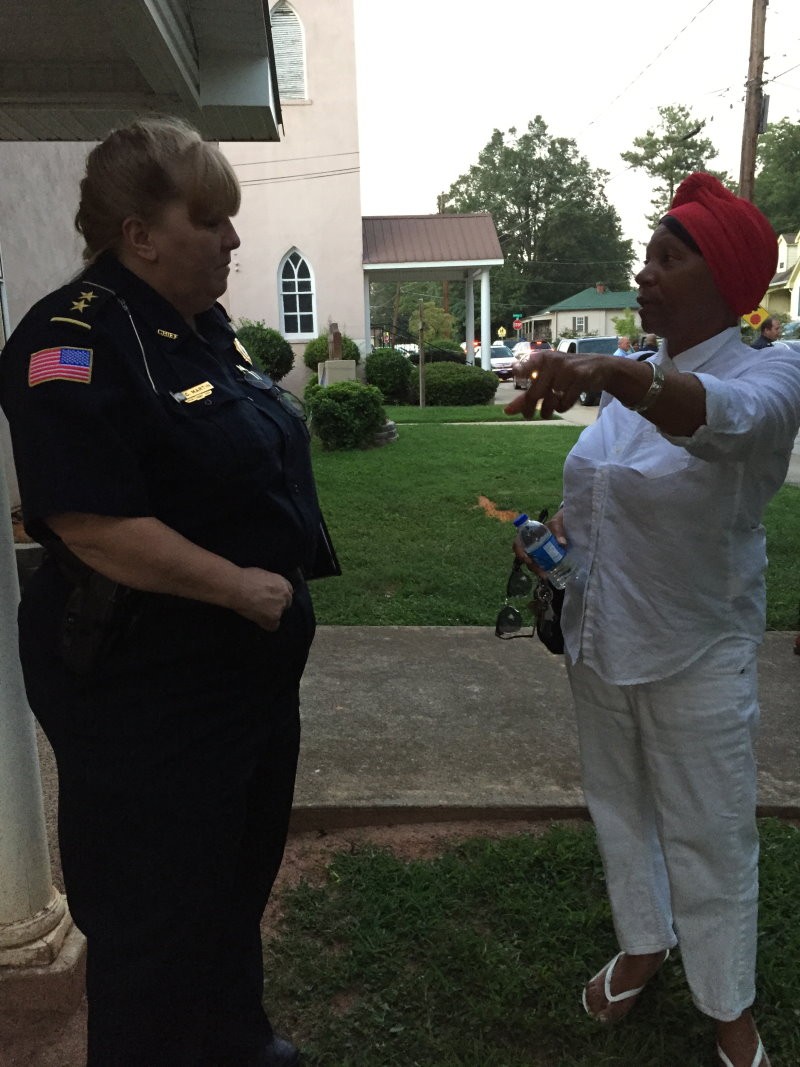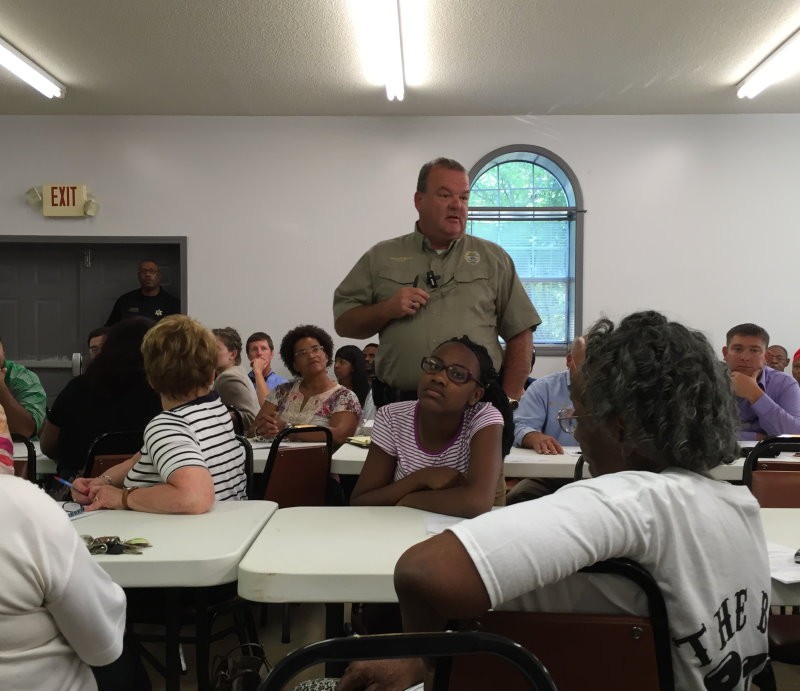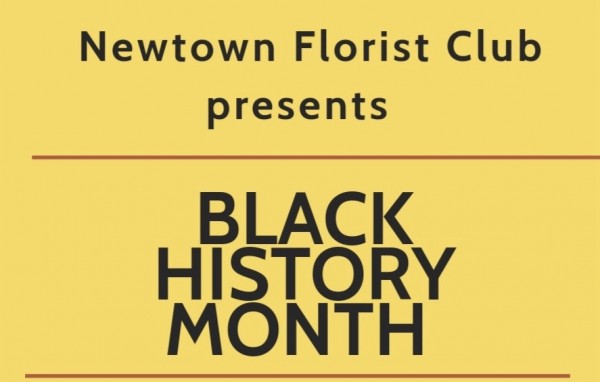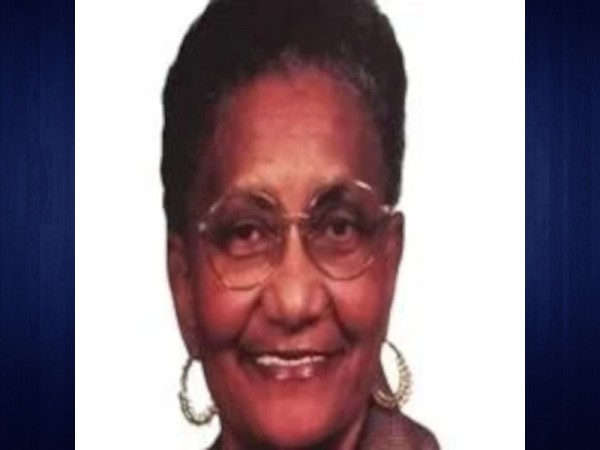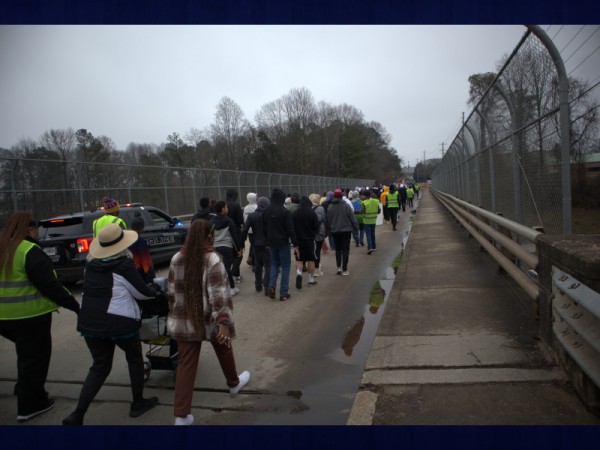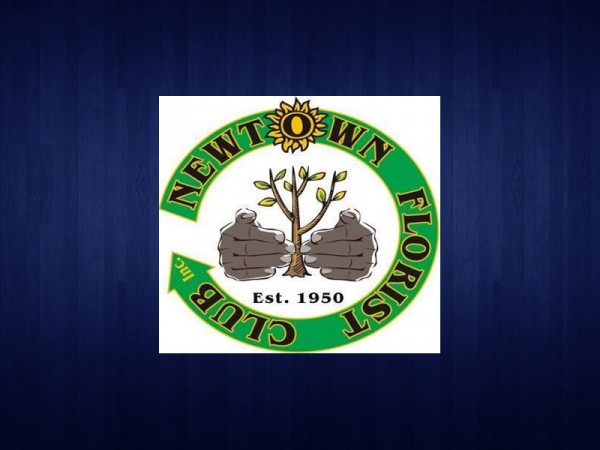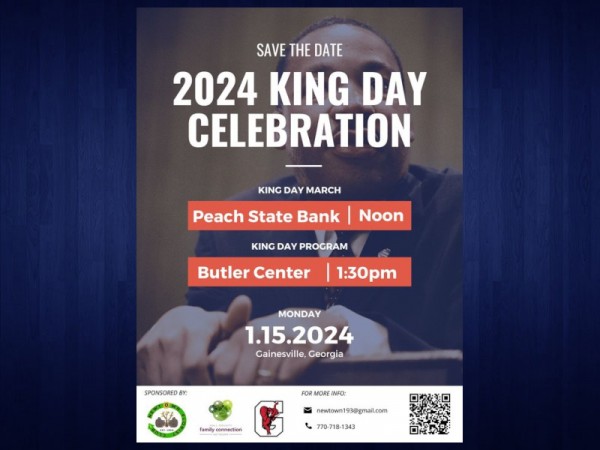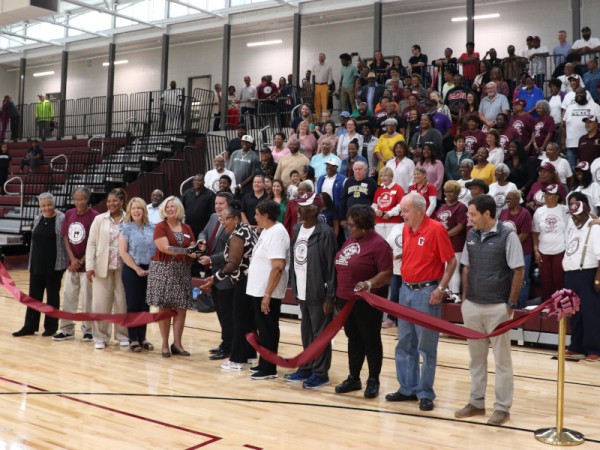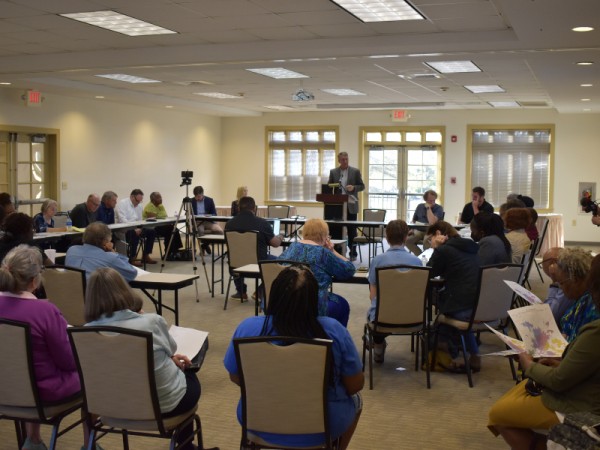GAINESVILLE — The conversation at a community meeting on racial profiling spanned nearly two hours at St. Paul United Methodist Church on Summit Street in Gainesville Thursday night.
The meeting was the latest in a series of gatherings organized this year to build some bridges between minority communities and local law enforcement.
Representatives from the police departments in Gainesville, Flowery Branch, Oakwood and the University of North Georgia were part of the panel discussion, along with spokespersons for the Hall County Sheriff's Office, Hall County Court System and the Gainesville Housing Authority. Community members who had signed up in advance to bring forth comments and concerns were allowed to tell their stories and ask questions.
The forum opened with a broad discussion on racial profiling, and law enforcement was given the opportunity to discuss how each department ensures officers are doing what they're supposed to do as they interact with the community on a daily basis.
Oakwood City Police Chief Randall Moon told the group technology has made accountability easier.
"We all wear cameras. I have one on here. All our officers are equipped with cameras, there are cameras in the cars," said Moon. "These cameras make all the difference in the world."
Moon said he hears rumblings about police profiling or harrassment in casual conversation, but he said it is rare that he gets an official complaint.
Gainesville Police Chief Carol Martin shared numbers that seemed to reflect Moon's statement, noting that in 2014, GPD received only two complaints of racial profiling and harrassment. Both officers were cleared by audio and by body camera evidence. In 2015, just one complaint has been filed; that one, too, was unsubstantiated.
The topic that prompted the most discussion was the issue of loitering along Atlanta Street.
City Councilwoman Myrtle Figueras said residents in Ward 3, which she represents, should be upset with her - not police - because she pushed for the ordinance.
"Figueras is the one - look at me, okay? Figueras is the one who stayed onto Carol [Police Chief Carol Martin] almost constantly to say we have got to get our people out of the street, off the corner of Atlanta Street, okay?" said Figueras.
"All lives to me are important, but especially important to me are the lives of those children who live on Atlanta Street. They are very precious children and they deserve to be able to come outside and play and not be subjected to a whole bunch of illegal activity."
While her comments drew a few "amens," some in the audience said they had been unfairly targeted for loitering or criminal trespass more than once.
Leroy Irvin said he had been asked for his identification while simply visiting in the Atlanta Street area. More than the actual request for the ID, he said, was the manner in which officers addressed him, usually with little respect.
"Teach the officers even though they know the law...how they're bringing it to us, they're not bringing it correctly," said Irvin. "Officers will say 'Hey, come here. Let me see your ID.' 'For what?' 'We got a call.' 'What call?'"
Kareem Harris said he felt that officers often issued warnings or made arrests for loitering arbitrarily. The problem, he said, the officers don't know the people in the community like they used to.
"[There were] police officers who used to walk around Atlanta Street 'What's your name? How you doin'?,'" said Harris.
Another man, who spoke without identifying himself, agreed with Harris.
"We get no respect and y'all [police] don't talk. Y'all don't talk to the people walking around, you act like you're damn scared of 'em or either you don't like 'em!"
Rose Johnson, the Executive Director of the Newtown Florist Club, the sponsoring group for the forum, shared with the panel of law enforcement personnel that she had received messages from some community members who were worried about speaking publicly about their concerns because they were afraid of retaliation by police.
The group of more than 100 also heard information from local attorney Donna Lockwood Sims about the consequences of waiving Fourth Amendment Rights. Hall County Public Defender Brad Morris explained the legal basics of resisting arrest and obstruction of an officer.
Because the meeting was interrupted at the end (see linked story), plans for future meetings were not announced.


